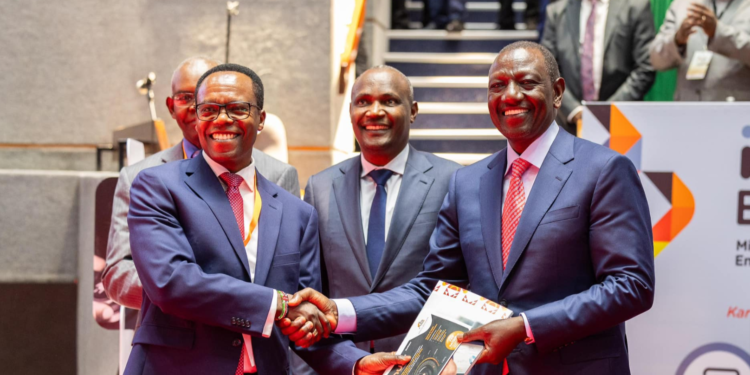The Kenyan banking sector, under the leadership of the Kenya Bankers Association (KBA), has committed a substantial KES 450.0 billion (approximately USD 3.48 billion) to support micro, small, and medium-sized enterprises (MSMEs) over the next three years, beginning in 2025. This financial injection is set to be a game-changer for MSMEs, a sector that drives the backbone of Kenya’s economy, by providing them with easier access to affordable credit.
The announcement was made on 17 October during the launch of the MSME Accelerator Program and the release of the 2023 banking industry report in Nairobi. The initiative aims to address one of the biggest hurdles faced by MSMEs—limited access to credit—while nurturing their growth and fostering development.
Kenyan President William Ruto, who was present at the event, reaffirmed the government’s commitment to empowering MSMEs. He highlighted that the government has earmarked USD 38.7 million in contracts for MSME traders, specifically for supplying products such as doors and windows for Kenya’s Affordable Housing Program. This project not only promises economic empowerment for MSMEs but also advances the nation’s goal of providing accessible housing for its citizens.
Ruto took the opportunity to encourage local banks to extend affordable loan options to MSME traders, commending the KBA for taking the lead. “This bold initiative will undoubtedly unlock the potential of our MSMEs and propel them to greater heights,” he said, emphasizing the critical role that MSMEs play in Kenya’s economic landscape.
Beyond the financial boost, Ruto revealed the government’s plans to construct 400 fresh produce markets nationwide, which will further enhance the business environment for small enterprises. He also urged banks to reduce their lending rates, in line with the recent Central Bank of Kenya’s reduction of the central bank rate to 12.00% from 12.75% in October MPC meeting. At present, commercial lending rates hover around 20.0%, posing a challenge for businesses seeking to expand.
The president also called attention to the sluggish credit flow to the manufacturing sector, warning that this trend is limiting job creation and worsening the country’s reliance on imported goods. He urged banks to extend credit to local manufacturers, which could stimulate domestic production, reduce the drain on foreign exchange reserves, and create a more sustainable economic environment.
Ruto’s vision for the future of Kenya’s MSME sector is ambitious. With MSMEs accounting for between 80%- 90% of the workforce and contributing a third of the nation’s GDP, their success is inextricably linked to Kenya’s overall economic health.
Adding to the optimism, the president highlighted improving economic conditions in Kenya, including a significant drop in inflation from a high of 9.5 percent in 2022 to the current rate of 3.6 percent as of September 2024. The Kenyan shilling has also stabilized, strengthening to around 129.2 to the dollar, down from its previous lows of 160.
This new financial pledge from the banking sector, coupled with supportive government policies, has the potential to unlock unprecedented opportunities for MSMEs and position Kenya as a hub for entrepreneurship and innovation. With local banks playing an instrumental role, the path to growth for small businesses in Kenya seems brighter than ever.


















